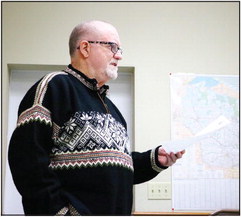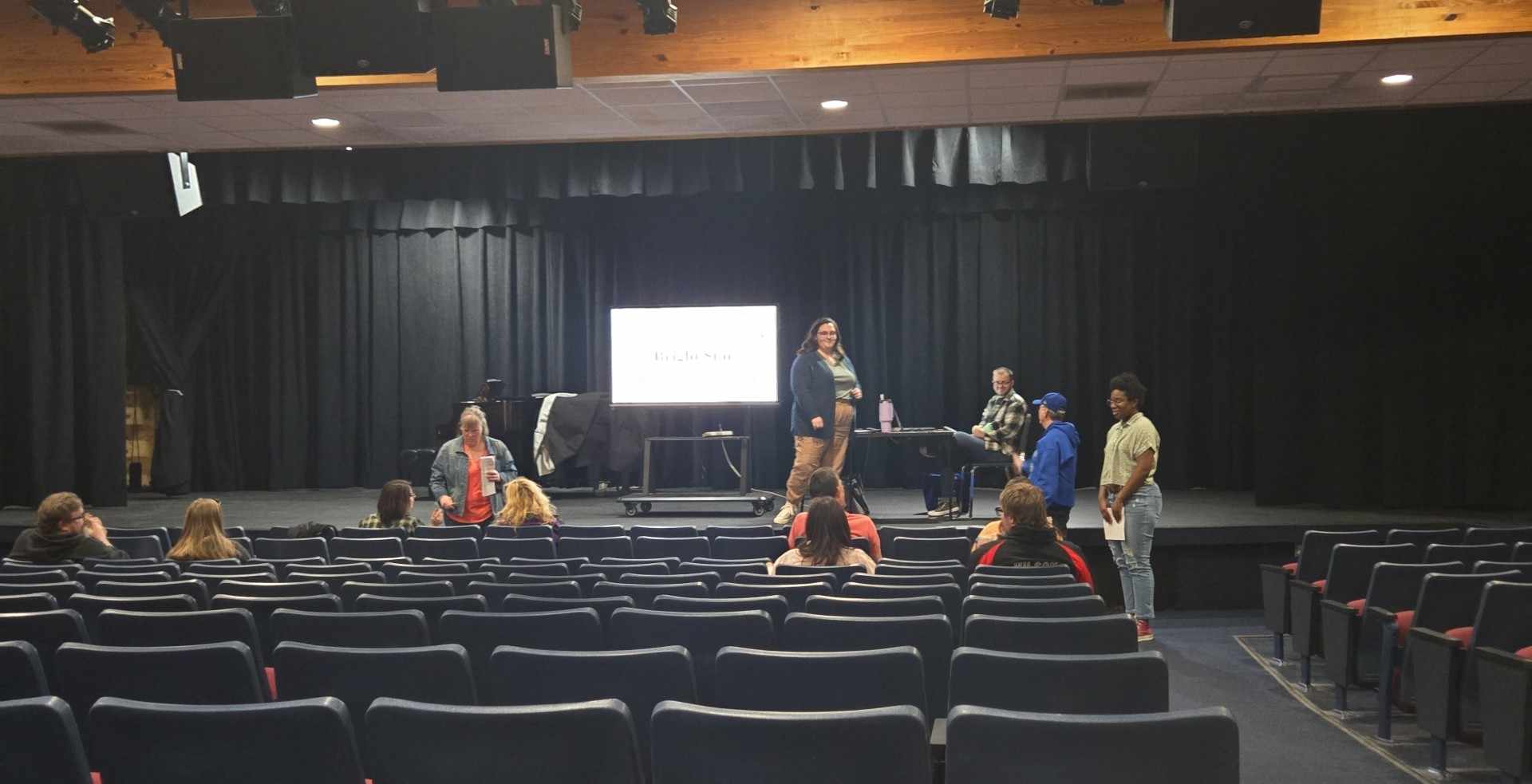Cornell City Council; Is the city ready to dive into the real estate market?


Charles Gable approached the Cornell City Council Feb. 3, to discuss forming a development agreement for property within the city. Photo by Ginna Young
By Ginna Young
Although it’s a little out of the realm of the Cornell City Council, nevertheless, members discussed Feb. 3, about possibly entering into a development agreement. Charles Gable, who lives in Seymour, has been in real estate development for most of his career.
As a property owner in Cornell, Gable noticed the city has lots for sale. Therefore, he proposes to build six or seven factory-built houses, in partnership with the city, as their construction manager.
“So, we build them and we sell them,” said Gable. After researching the project, Gable thinks the city could buy a 24x52 factory-built home for around $115,000.
“I can’t build a house for $115,000,” said Gable. “I think there’s something we can do here.”
“So, you’re suggesting the city put up the money for this and then we get reimbursed how?” asked council member Ashley Carothers.
Gable said the city would recoup the money they put up when the house sold, but admitted the city is not guaranteed when that would happen.
“Is this something we can even legally get involved with?” asked council president Steve Turany.
Dave DeJongh, city administrator, says it should be legal, because it would simply be a development agreement.
“I don’t feel comfortable doing this,” said Carothers. “I think it’s a fantastic idea, I just don’t think the city should be the one to do it.”
Council member Floyd Hickethier said the specs Gable provided appear to be a good solid house, but that “it’s not much” for $115,000.
DeJongh said the project would provide good housing, with the property put on the city and school tax base.
“All things you want in your community,” said DeJongh. Members agreed they need more information before deciding one way or another, and sent the matter to committee.
DeJongh also reported on the Xcel Energy substation transformer replacement, which serves the paper mill. Xcel owns the transmission lines, which serve Cornell’s substation, thereby serving the city.
“When we rebuilt our substation (in 2012) and started buying our power wholesale from other supplies, we were asked by Xcel to take over our substation,” said DeJongh. “And at that point, we totally rebuilt it and put in a new transformer.”
What DeJongh didn’t realize, was that when Xcel rebuilt their substation around the same time as Cornell, they kept the same transformers, which are greatly aged. The substations sit next to each other, with a transformer between, to allow the city to serve the paper mill if something happens to Xcel’s station and vice-versa.
There is no cost to the city and members said they didn’t have a problem with continuing to “share” the substations as before.
“I think it’s beneficial to both parties,” said DeJongh. The council also gave approval for a memorandum of understanding with Chippewa County, to provide statewide voter registration system services, as well as an Intergovernmental Cooperative Agreement with Chippewa County, to provide uniform dwelling code enforcement (building inspection services).
“Our building inspector’s retiring,” said DeJongh. It was also reported that work is close to being done at the wastewater treatment plant, with employees working on training.



